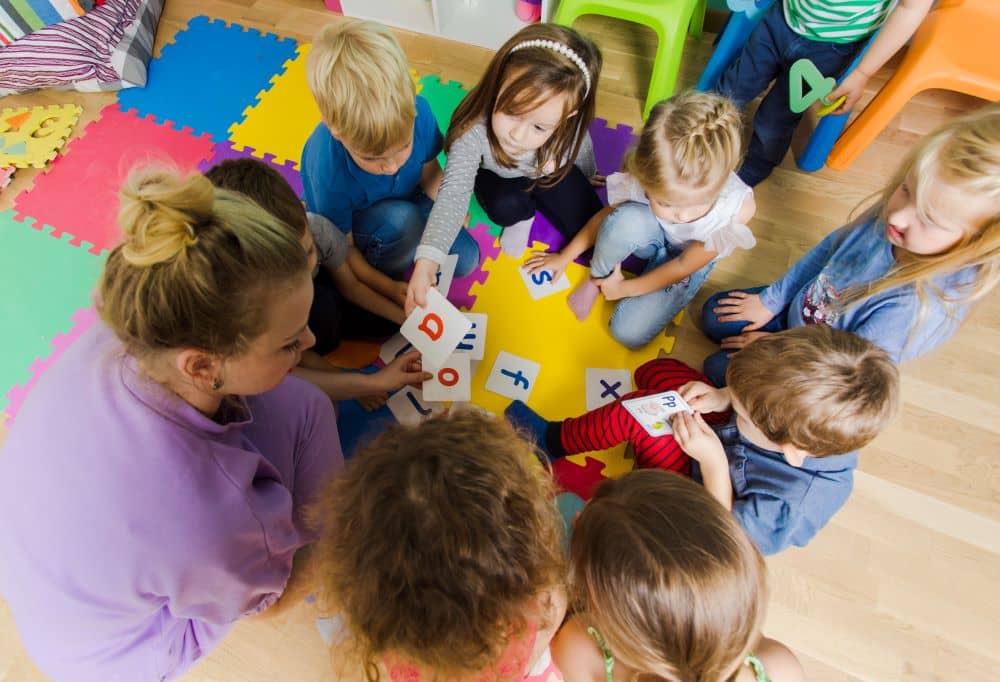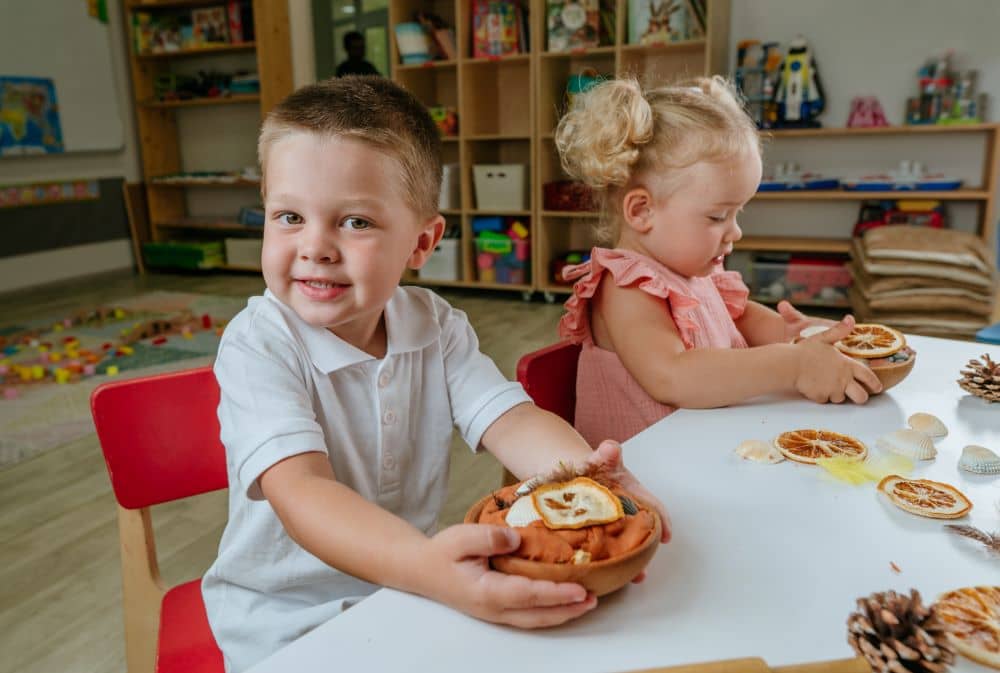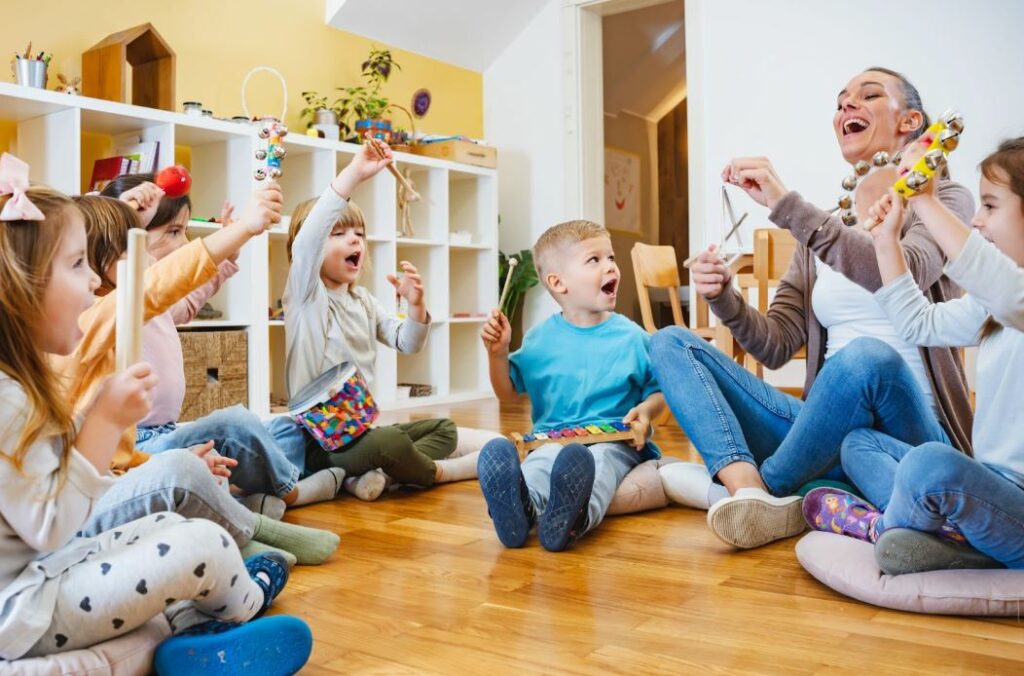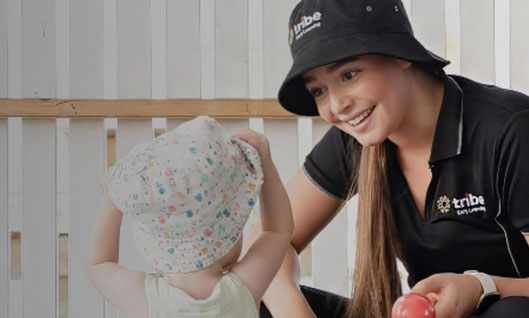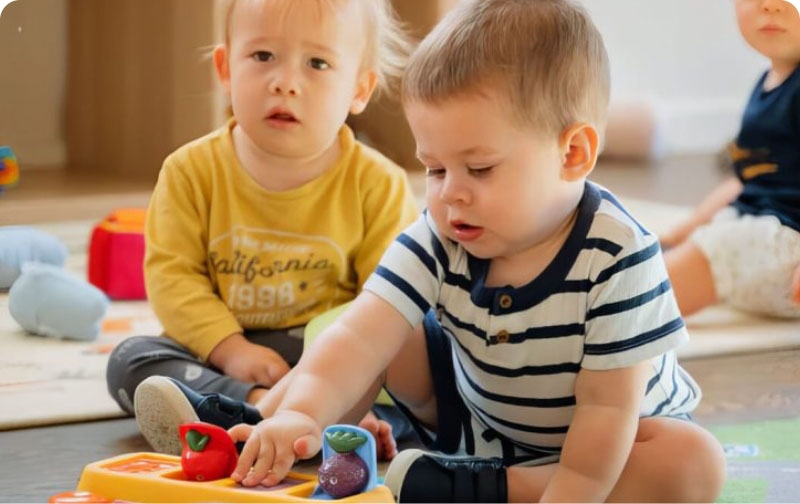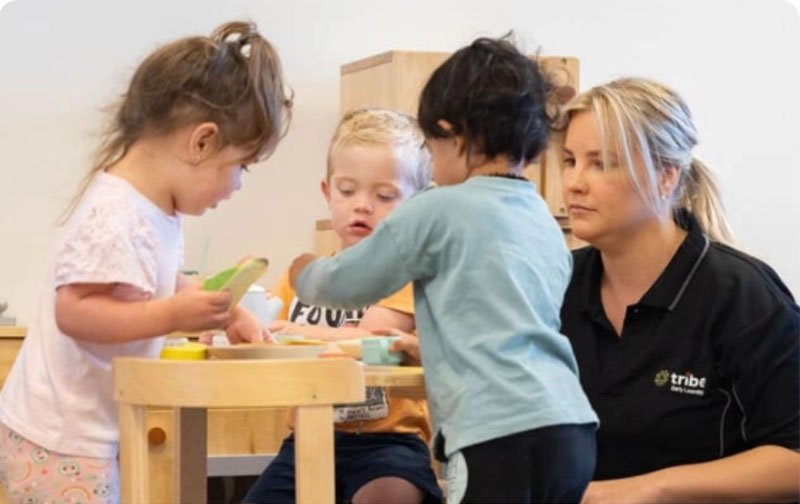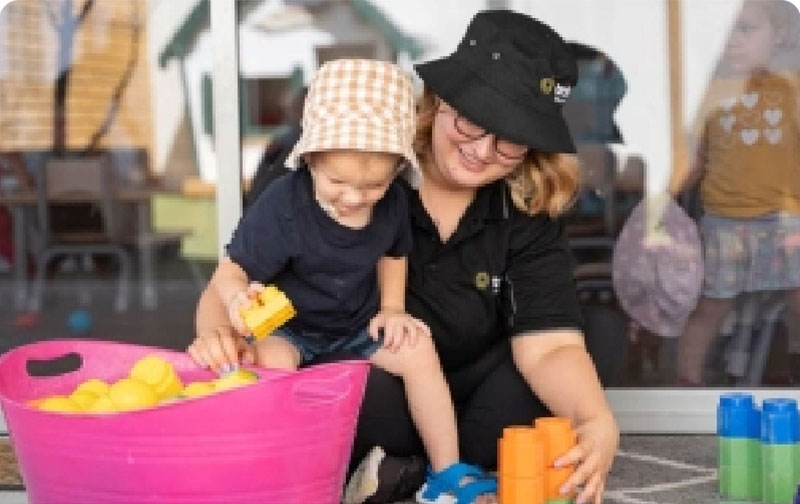There are two critical periods of brain development. One occurs when the child is two until around age seven, and the other is during adolescence. The first stage provides a prime opportunity to lay and strengthen the foundation for children’s early education via an early learning centre.
A few simple ways to maximise this significant period in their lives include encouraging them to learn and love learning. Parents should also give focus on emotional intelligence and breadth rather than depth. Finally, it is essential to understand that early education is not a mere antecedent to “real” learning.
As a parent, you may have read about the advantages of play-based learning and socialising for group play. They are emphasised in preschools, and early learning centres are building blocks for children’s development. Early education provides helpful resources, tools, and educators, so children get the best start. The Australian Early Development Census studied the effects of early education on 300,000 children. Research showed there are indeed long-term benefits to the learners, as well as the whole community.
So, what exactly does a childhood care centre offer to your child’s early development? Let’s take a look at the top 5 benefits of early education that your child will enjoy in the long term:
1. Cognitive Skills
WA and other states, except Victoria, have four-year-old kindergartens, allowing children to begin their education journey at an early age. There is clear evidence that early learning centres have a major impact on a child’s future, including how their cognitive skills develop. That’s why the quality of the early learning environment is crucial in helping build the brain’s architecture.
Kindergartens and early learning centres have play-based learning programs where emotions, language, imagination, and creativity are all honed. For outsiders, including adults, it may look like children are simply playing. However, it’s more complex, as these activities facilitate a new learning experience. Imaginative play and constructive learning help in the development of children’s cognitive skills.
Cognition is incredibly valuable as it involves memory, reasoning, problem-solving, and other thinking skills. Children depend on their cognition to make sense of their world. By the time they are in preschool, their cognitive skills are developed, enabling them to engage in scientific reasoning and mathematical thinking.
For very young children, cognitive development is typically presented as these two mentioned domains. It’s important to separate them to highlight the complexity and differentiated abilities of the preschool age group. Here’s how:
- Mathematics Development refers to understanding quantities and numbers, along with their operations and relationships. For example, what does it mean to take away or add to specific numbers? Mathematics does not end in numbers; it also includes shapes and their measurements, patterns, structures, and classifications.
- Scientific Reasoning is the ability that allows for the development of scientific knowledge involving the physical and natural worlds. As early learning continues, children can make observations they can talk about, record, and analyse.
Problem-solving, reasoning, and mathematics become more complex as children gain new abilities. They tend to be more inquisitive as they ask questions to gather the information they need.
2. Social Development
Many studies around early education support the link between improved social skills and early learning. Ages three through five are crucial in enhancing children’s social connection. During this stage, kids want to play with other children of the same age. They might even have a “best friend” or a group they like to interact with.
Therefore, it is genuinely beneficial to expose them to a group learning environment, which should be present and encouraged in the early learning centre of your choice. Children immersed in such an activity develop emotional maturity faster, which is the key to building and maintaining social relationships.
In an early education setting, children use their social skills not only to make friends with people their age but build appropriate relationships with grown-ups, especially educators. This kind of social skill is useful for the rest of their education, as well as later in their adult life.
Social development demonstrates that learning is beyond the 123s and ABCs. Young children need to regulate their emotions, follow instructions, share with others, and acquire other social skills. These skills are not only for future relationships but also for developing cognitive abilities, such as numeracy and literacy.
That’s why it is significant to pick an early learning centre where educators are focused on setting foundations for improving social skills through their curriculums. It teaches children how to make healthy emotional choices, which in turn helps them become better equipped to foster positive relationships.
3. Health and Wellbeing
Just like adults, children thrive when they have a daily routine. It makes them feel safe and secure. Early learning centres can offer this feeling of safety. They create good exercise for kids whilst they are not at home.
Early education also has an impact on your child’s healthy habits. Even if you teach about brushing teeth at home or washing hands, educators can reinforce these habits whilst they are in another environment apart from home. In a learning setting, children know what to expect each day. With such knowledge, they are more likely to be settled and calm. It also helps improve their sleeping habits.
Over time, the childhood development and education provided by early learning centres can enable children to have a more organised set of daily activities. They will eventually learn to get dressed, pack their bags, and prepare their things as they look forward to a new day.
Adverse events can impact a kid’s life in the long term. They can take a toll on a young person’s mental health. For example, early life stress, such as family instability, poverty, and unsafe neighbourhoods, can lead to developmental delays and poor health. Unfortunately, children exposed to these situations can have inadequate coping skills, reduced social functioning, and struggles regulating emotions.
To counter the adversity, quality education is necessary to reinforce childhood interventions and even lengthen the positive effects over time. A report called Lifting Our Game states that high-quality early education is linked with better employment, income, and financial security. It also helps children grow up with improved health and reduced crime, further concluding that early education is needed to build skills required for future jobs.
4. Emotional Resilience
The Royal Children’s Hospital’s Centre for Community Child Health believes that parents or guardians should take advantage of a child’s first 1,000 days to create a strong foundation for development. By age five, health professionals concur that about 90% of the brain has started developing. It is at this time that quality early education is necessary.
When it comes to developing emotional resilience, what is it exactly? By definition, it is the ability to bounce back after a tough, challenging time. A resilient child can recover from difficulties and get back to living life with a positive outlook. To build resilience, the first five years are the most crucial.
According to research by the University of Melbourne, children attending childhood education early, preferably at two to three years, create better outcomes. They become more attentive and emotionally mature, allowing them to cope with struggles that challenge their emotional stability.
In an educational setting, educators teach children to be more self-aware. They are taught to reflect on their actions, which helps them understand why they are upset or sometimes lash out. To some children, it is not easy to understand their strong feelings. As a result, they struggle to relate to and understand other people. That’s why kids must learn that their actions can affect others. An excellent early learning centre can help children tune into their actions, feelings, and words so they can make and keep friends.
The benefits go both ways, as early learning also provides use for parents. They reap social and emotional rewards – sometimes even financial gains.
5. Positive Outcomes
The AEDC promotes early learning as research shows that children attending at least one year of early education perform well in primary school. That’s because they benefited from experiences that boosted their social and cognitive development, as well as the others mentioned above. Therefore, they have a better probability of reaching higher levels of numeracy and literacy later in life.
Early learning centre educators know the exact type of learning that your child requires. When you visit one, you may see that there are mostly toys in the classroom. But these toys and games are all designed to help your child grow and learn. At times, the young may not even realise these toys are for learning. However, classrooms are where they can cultivate a positive educational outcome, which will come in handy in their later years.
How We Can Help
At Tribe Early Learning, we understand the great benefits of early education. That is why we offer early learning services that are holistic. It’s our mission to cater for the diverse and even complex needs of your child and your family.
For the highest quality of early childhood education, we have educators who have a deep understanding of the long-term benefits of an early learning experience for your child. Give us a call today.

